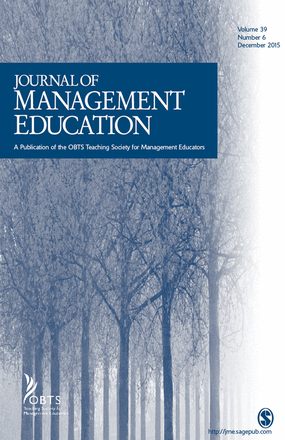Journal of Management Education’s Editors on the Invisibility of Reviewers
 For reviewers, anonymity can be both a good thing and a bad thing. While anonymous reviews allow reviewer’s freedom to evaluate submissions solely based on merit, anonymity also means that reviewers are left unrecognized for their thoughtful yet time-consuming work. It would seem that this trade-off has made reviewing less of an attractive opportunity for potential reviewers. In their article, “Harry Potter in the Academy: Reviewing and Our Own Cloak of Invisibility,“ published in the current issue of Journal of Management Education, Kathy Lund Dean and Jeanie M. Forray offer a thought-provoking discussion of the flaws and merits of the blind review process, including why change is necessary to attract new reviewers. The article begs the question, is it possible that in the future, reviewers will cast off their Invisibility Cloaks, so to speak, and receive more recognition?
For reviewers, anonymity can be both a good thing and a bad thing. While anonymous reviews allow reviewer’s freedom to evaluate submissions solely based on merit, anonymity also means that reviewers are left unrecognized for their thoughtful yet time-consuming work. It would seem that this trade-off has made reviewing less of an attractive opportunity for potential reviewers. In their article, “Harry Potter in the Academy: Reviewing and Our Own Cloak of Invisibility,“ published in the current issue of Journal of Management Education, Kathy Lund Dean and Jeanie M. Forray offer a thought-provoking discussion of the flaws and merits of the blind review process, including why change is necessary to attract new reviewers. The article begs the question, is it possible that in the future, reviewers will cast off their Invisibility Cloaks, so to speak, and receive more recognition?
From the editorial:
We should not be surprised by the shrinking pool of reviewers for our conferences and publications. Steve Kerr explained for us decades ago how we focus our attention on that which is rewarded at the expense of other activities (Kerr, 1975). Perhaps because of Kerr’s article so many years ago and its continued power to frame reward systems theory and practice, we would expect management academics to, well, understand how not acknowledging the importance of reviewing will lead to precisely the dearth of reviewer pool we and other editors are experiencing, and change the reward system. That reviewing remains largely considered a service activity rather than a bona fide intellectual contribution is a serious issue for the continued health of our field. And the “blind” aspect of reviewing only exacerbates its invisibility—a reviewer devotes many hours, probably closer to a full day, to assessing a manuscript and to crafting a helpful, supportive review, and all that is usually noted on that person’s CV is a single bullet point telling others for which journals she or he serves as a reviewer. This must change, not only due to the inequity between those who author and those who review but also because of its gross distortion of how publication actually comes about.
You can read the rest of the editorial from Journal of Management Education free for the next two weeks by clicking here. Want to know about all the latest research from Journal of Management Education? Click here to sign up for e-alerts!
































































































